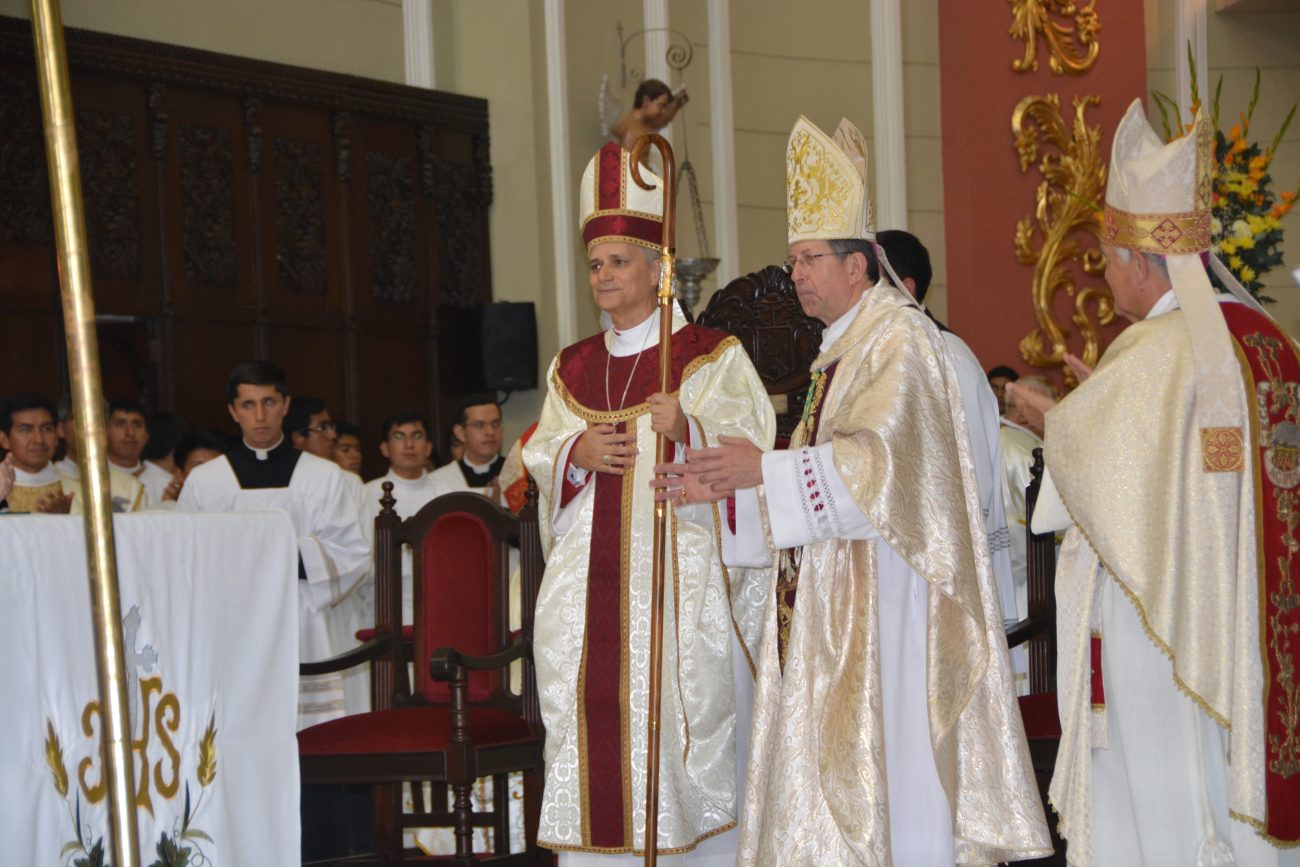The personality and experience of Cardinal Robert F. Prevost that led the College of Cardinals to elect him Pope Leo XIV were already evident to one prelate long before last week.
A continent away and 11 years earlier, Archbishop James P. Green was serving as the apostolic nuncio to Peru—ambassador for the Holy See to that South American nation.
A bishop was needed for the Diocese of Chiclayo, and as nuncio, it was his responsibility to identify a priest for the role and suggest him to the pope for appointment.
Archbishop Green had previously met then-Father Prevost in Rome years earlier and gotten to know him well. The latter had led the Order of St. Augustine as prior general, and the archbishop was serving in the English-language section of the Vatican’s Secretariat of State.
Now living in retirement in the Philadelphia area, Archbishop Green had been serving in the Catholic Church’s diplomatic corps since the early days of his priesthood, which began in Philadelphia when he was ordained a priest for the archdiocese by Cardinal John Krol in 1976.
The archbishop knew the Chicago-born Augustinian priest had decades-long experience serving as a missionary in Peru and had just finished his term leading the Augustinian order. He was available for service as a bishop in Peru.
“I was back in Rome for a while for meetings and speaking with Pope Francis,” Archbishop Green recalled in an interview last week about the events unfolding in 2014. “I mentioned to him that I was thinking about Father Prevost to be bishop of Chiclayo and he knew Father Prevost because of meetings about South America that they had had over the years. The pope was very much in favor of it so he appointed him bishop of Chiclayo.”
Since a treaty between the Holy See and Peru stipulates that an ordinary, or bishop of a diocese, must be a Peruvian citizen, Father Prevost was named apostolic administrator. After the necessary paperwork for citizenship was filed, he was ordained a bishop in 2014 by Archbishop Green and later named the ordinary of Chiclayo.
Ordaining a bishop is a privilege in itself, but it has added significance when that bishop becomes pope.
“I ordained the pope as a bishop! It’s so strange for me to say this,” Archbishop Green said. “Actually he just wrote me an email, thanking me for ordaining him.”
The archbishop said the former Bishop and later Cardinal Prevost presented the right qualities for the need in Peru at that time, and now for the universal Church.
“I knew he was extremely dedicated to the Church in Latin America (and) had been very happy as a missionary priest in Peru,” Archbishop Green said. “He had worldwide experience by then, having been superior of the Augustinians, and having studied and lived in Rome. This brings a special dimension that you wouldn’t find in every candidate for the episcopacy.
“That’s very important and certainly now in light of his being elected holy father, he’s been all over the world, visiting and meeting the different communities. You don’t get that experience with many people. That gives (him) a very wide vision of the Church.”
From his position as the apostolic nuncio working with the Catholic community in Peru, Archbishop Green observed Bishop Prevost “working very well with the other bishops of Peru, and that was a sign for the future,” he said.
Archbishop Green reflected on Pope Leo’s reference in his first remarks as pontiff to “building bridges.”
“He has done that for a long time. He has really tried to connect people,” he said. “He was very good with connecting the Peruvian bishops, who weren’t always in agreement with each other, and bringing both sides together. I saw this already in him.”
After Pope Francis named Bishop Prevost to the Congregation for Bishops at the Vatican and elevated him to the cardinalate, he forged connections with prelates at the highest levels of the Church’s administration.
That made his election as pope fairly smooth, Archbishop Green believes, as evidenced by the conclave’s conclusion in only four ballots – considered to be quite fast.
All of Pope Leo’s past experience “certainly serves (the Church) extremely well now, being able to unite people. Because he has to do that,” he said.
The two essential tasks of a pope, according to Archbishop Green, are “to be the point of unity, and he confirms us in our faith. They’re the two things that the pope must be able to do. So if he’s a pontifex (an ancient term used for the pope), that’s what bridge-builder means, this is great!” he said.
“Listening to him talk, you can see his confidence. He’s not arrogant, he’s very humble and pastoral. You can see he’s secure in his position and this is a very good sign. This also helps the entire Church. It gives us who are on the outside a great sense of confidence and security in him.”
PREVIOUS: Latest Clerical Changes Announced by Archbishop Pérez
NEXT: Catholic Charities of Philadelphia Program Seeks Partners for Summer Meal Program



Share this story